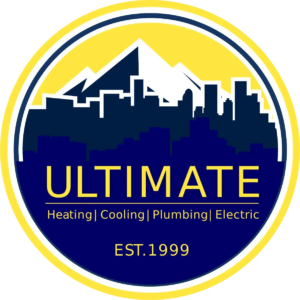You’re lucky if you’ve never had an HVAC problem before—each year nearly 25% of homeowners need their heating and cooling appliances repaired. However, it’s not surprising repairs are so common, as less than 50% service their HVAC system annually. Considering there are 110 million US households using air-conditioning (90% of the country), this means there are a considerable number of people who have little to no experience hiring an engineer to repair faults or conduct routine maintenance.
Whether you’ve hired a home appliance repair specialist before or not, check out our rundown of recommended questions to ask an HVAC technician. Talking to professionals and asking questions is a great way to learn more about the ins and outs of HVAC, how to look after it effectively, and how to reduce problems occurring in the future.
Pick the right company and identify the cause of your HVAC issue
If you need to repair or replace an HVAC system and want to guarantee the best outcome, below are three important questions to ask.
How much experience do you have with homes/systems like mine?
When hiring a particular HVAC company for the first time, find out how experienced they are with your system and whether they’ve worked in a home like yours before. Doing so is a great way to gauge whether they’re able to complete the job safely and efficiently. For example, we’ve serviced five Colorado counties for 40+ years and worked on all types of HVAC in countless styles of homes.
Additional experience and skill-related questions worth asking include:
Are they certified by any national training organizations, such as NATE (North American Technician Excellence)? If so, it means they’re trained to a high standard.
Do they follow the Manual JSD process when installing or upgrading heating and cooling equipment? This is a protocol developed by the Air Conditioning Contractors of America (ACCA) to ensure technicians fit only the most appropriately sized HVAC equipment. Failing to do so risks an inefficient system leading to higher energy bills.
How old is my HVAC system?
Knowing the age of your HVAC is crucial as they have a limited lifespan. ENERGY STAR recommends replacing ACs and heat pumps over 10 years old, and furnaces and boilers over 15 years old. While it’s routine for most HVAC technicians to provide an estimate of the HVAC’s age to the homeowner, it’s worth remembering this question in case it’s somehow overlooked.
What caused the system to stop working?
Knowing the actual cause of your HVAC problem is crucial to ensure it doesn’t happen again. We know it might sound obvious, but it’s easy to mistake a symptom for a cause. For example, the main source of poor duct airflow could be because of a failing blower motor, instead of a dirty air filter. Fortunately, experienced technicians know how to get to the root of a problem, so they’ll get the job done right the first time. Nevertheless, don’t hesitate to ask if you have any doubts about your technician’s diagnosis or want to better understand what happened.
Find solutions
Once an HVAC issue is properly identified, the technician can focus on resolving it. The following questions are worth asking:
How will you fix the problem?
Is this a permanent solution?
A competent technician will fully explain their repair process and let you know if they have any special requests to complete the task smoothly, such as providing access to a locked area. Likewise, they’ll give you a heads-up if it’s only a temporary repair and whether you’ll need to plan for a permanent fix in the future.
What kind of filter do I need?
Clogged air filters cause poor air circulation indoors, which leads to dirt, mold and dust build-up, as well as lingering odors. Technicians undertaking annual HVAC maintenance always clean or change air filters. However, it’s worth asking them what model they’re fitting, as it means you can replace it yourself in the future if needed. Most crucial is clarifying which MERV rating is suitable for your furnace. Residential systems typically use filters with a 1 to 8 MERV rating. To learn more about air filter ratings, talk to your technician and read the Environmental Protection Agency’s MERV rating explanation.
Should I use a HEPA (High-Efficiency Particulate Air) filter?
These are especially useful for anyone wishing to maintain a high standard of indoor air quality, as they virtually eliminate all harmful airborne particles and dust.
How often should I change the air filter?
The standard advice is to replace air filters every season. However, some homes might benefit from more frequent replacements or cleaning.
Ask about the future of your HVAC
Even if you have a totally reliable and well looked after HVAC system, there’s always room to improve it by asking your technician the following:
What maintenance work can I do to keep my system working efficiently and prevent future problems?
Many homeowners prefer to outsource seasonal HVAC maintenance tasks to a specialist, which is entirely understandable. However, if you want to better understand how to look after your setup between routine maintenance appointments, ask your technician for advice and instruction. Below are some basic tasks worth learning that’ll keep your HVAC in optimal condition:
Checking ductwork sealing is secure
Cleaning or replacing air filters, as well as dust from the ductwork
Fine-tuning your thermostat
Identifying signs of faults
Do you have a maintenance plan?
Annual HVAC maintenance plans are an effective way to save money, so it’s worth asking your technician if they offer any. We have three annual maintenance plans, with prices starting at $125 per year. Aside from saving money, maintenance plans improve the condition of your system as they check a wide range of internal components, such as the ignitor, blower motor shaft, and electrical cables. Filter and duct cleaning is conducted too.
If you feel you’re bothering your technician by asking them questions about your HVAC or the repair, don’t worry—answering questions is part of their job and they take great pride in ensuring homeowners are satisfied and well informed. If you want to schedule an appointment or talk to one of our team, send us a message or call [theme_company_telephone]


